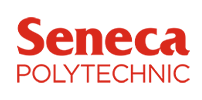 Industry Development
Industry Development Natural Resources & Environment
Natural Resources & Environment Online at your own pace
Online at your own pace Online scheduled
Online scheduled Winter Term
Winter Term Spring/Summer Term
Spring/Summer Term $500 - $1000
$500 - $1000 English
English
This microcredential will provide the knowledge and know-how for driving business performance through a focus on sustainability.
Building on a foundational understanding of sustainability and how it impacts business performance, you will learn proven strategies to address growing demands for enhanced environmental and social governance, while simultaneously improving business performance.
This microcredential is for graduates and working professionals, who wish to build their knowledge in sustainable business management to accelerate their careers.
Skills and Competencies
In recent years the demand for Sustainability professionals has grown dramatically. GreenBiz, an internationally renowned media and research outlet dedicated to Sustainability produces an annual report known as the “State of the Profession”. In this report it states that “responsibilities for Environmental Management (including carbon management) are going to be spread across the organization. Job postings are going to call on people with more and more Sustainability skills. Over 50% of respondents reported an increase in budget and headcount over the past 2 years.” As sustainability becomes professionalized, all professions will look for sustainability skills. Furthermore, a market scan revealed a gap in the Canadian market for an accredited Sustainability Microcredential. Currently, there are no Canadian academic institutions offering a similar program. There are a number of similar programs offered by academic institutions in the US and Europe. In addition, this microcredential will help businesses respond to a number of recent sustainability and carbon related Government regulations, including:
Greenhouse Gas Pollution Pricing Act: This regulation puts a price on Carbon at $50/tonne in 2022 going up to $170/tonne by 2030. This price on Carbon adds significant costs to a business that erodes margins and as such, is a strong incentive for businesses to implement strategies for reducing Carbon Emissions.
Single Use Plastics Ban: As part of the efforts to transition Canada to a more Circular Economy, the GoC has introduced legislation to ban certain single use plastics as early as 2022 followed by minimum requirements of 50% recycled content in all plastics. This regulation will force businesses to innovate in areas such as packaging, raw material inputs etc. and accelerate business’ transition towards the Circular Economy.
Extended Producer Responsibility: Also known as EPR, this regulation shifts the cost burden of packaging disposal from a split between producer and consumer to 100% producer responsibility. Through increased stewardship fees based on type and weight of packaging material, recyclability, recoverability etc., this regulation will add costs and further erode margins. As a result, businesses across the country will be incentivized to accelerate their transition towards the Circular Economy.
Canadian Net Zero Emissions Accountability Act: This Act became law on June 29, 2021 and is designed to ensure transparency and accountability with regards to the GoC’s commitment to achieve Net Zero Carbon Emissions by 2050. This will directly impact government suppliers while also creating a ripple effect through the Canadian Economy that will drive Businesses to adopt and accelerate their own Net Zero targets.
 Spring/Summer Term
Spring/Summer Term Winter Term
Winter TermTell us about your experience with our training. Complete this 2-4 minute survey.